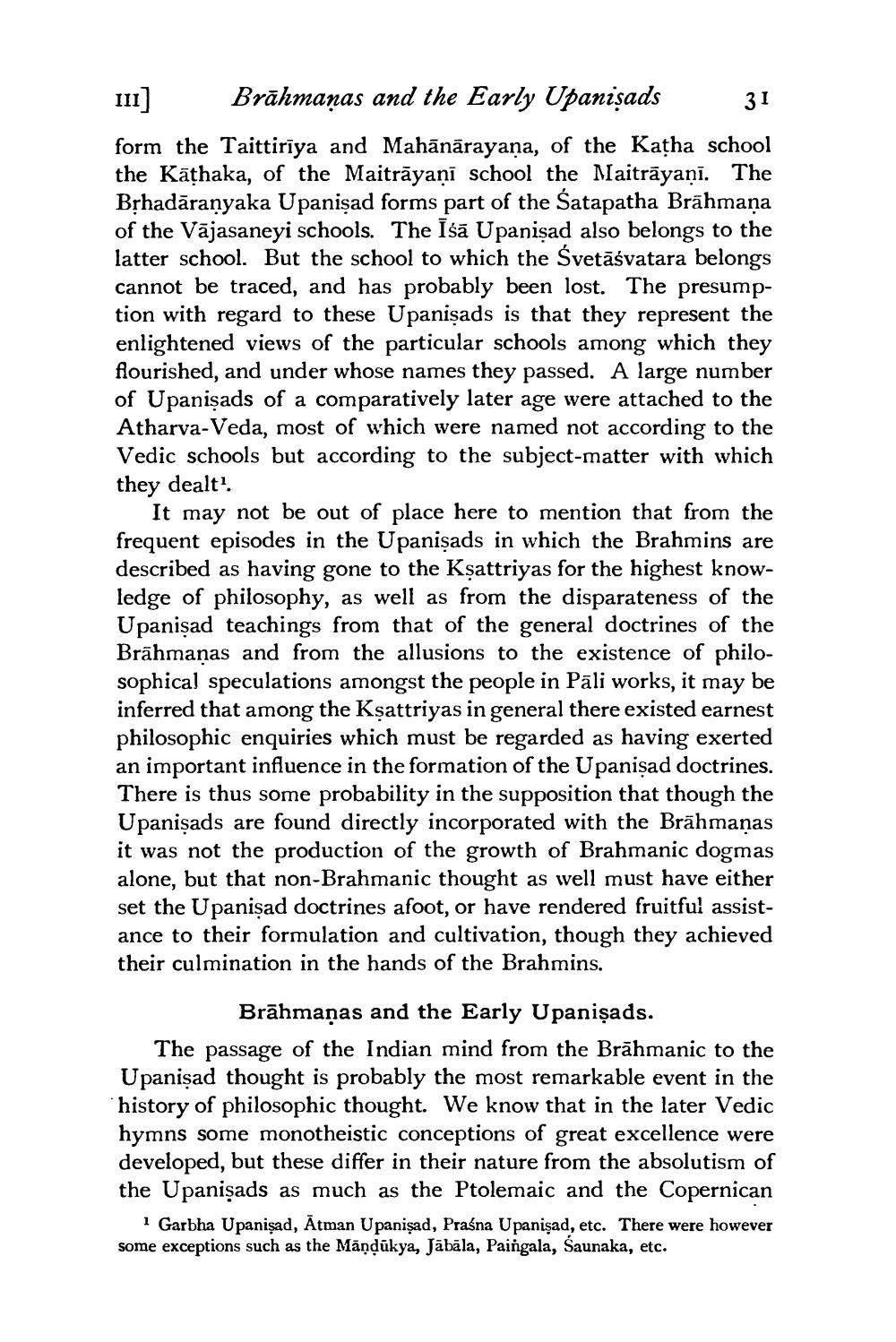________________
111] Brāhmaṇas and the Early Upanişads 31 form the Taittirīya and Mahānārayana, of the Katha school the Kāțhaka, of the Maitrāyaṇī school the Maitrāyaṇī. The Brhadāraṇyaka Upanişad forms part of the Satapatha Brāhmana of the Vājasaneyi schools. The īsā Upanisad also belongs to the latter school. But the school to which the Svetāśvatara belongs cannot be traced, and has probably been lost. The presumption with regard to these Upanisads is that they represent the enlightened views of the particular schools among which they flourished, and under whose names they passed. A large number of Upanişads of a comparatively later age were attached to the Atharva-Veda, most of which were named not according to the Vedic schools but according to the subject matter with which they dealt?
It may not be out of place here to mention that from the frequent episodes in the Upanişads in which the Brahmins are described as having gone to the Kșattriyas for the highest knowledge of philosophy, as well as from the disparateness of the Upanişad teachings from that of the general doctrines of the Brāhmaṇas and from the allusions to the existence of philosophical speculations amongst the people in Pāli works, it may be inferred that among the Kşattriyas in general there existed earnest philosophic enquiries which must be regarded as having exerted an important influence in the formation of the Upanisad doctrines. There is thus some probability in the supposition that though the Upanisads are found directly incorporated with the Brāhmanas it was not the production of the growth of Brahmanic dogmas alone, but that non-Brahmanic thought as well must have either set the Upanisad doctrines afoot, or have rendered fruitful assistance to their formulation and cultivation, though they achieved their culmination in the hands of the Brahmins.
Brāhmaṇas and the Early Upanişads. The passage of the Indian mind from the Brāhmanic to the Upanisad thought is probably the most remarkable event in the history of philosophic thought. We know that in the later Vedic hymns some monotheistic conceptions of great excellence were developed, but these differ in their nature from the absolutism of the Upanişads as much as the Ptolemaic and the Copernican
i Garbha Upanişad, Ātman Upanişad, Praśna Upanişad, etc. There were however some exceptions such as the Māndūkya, Jābāla, Paingala, Saunaka, etc.




